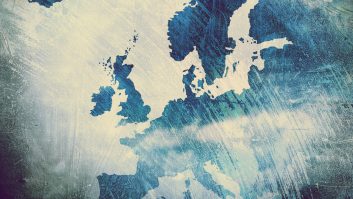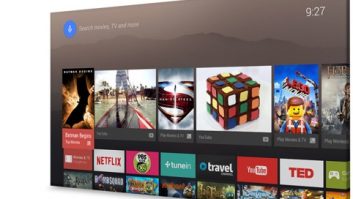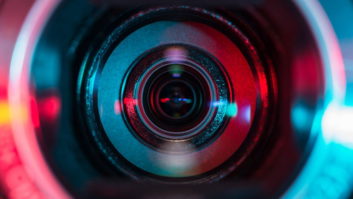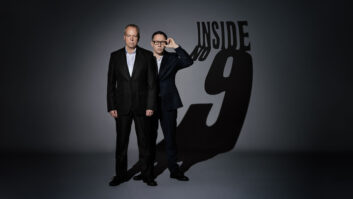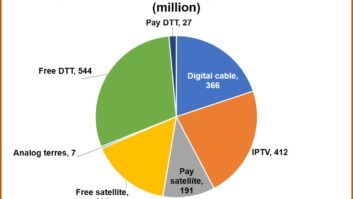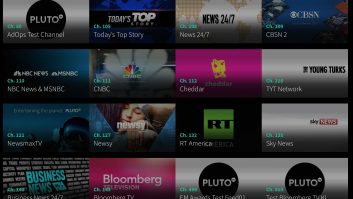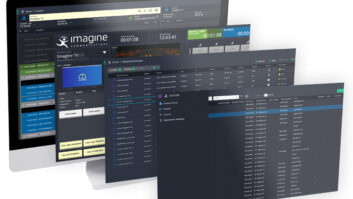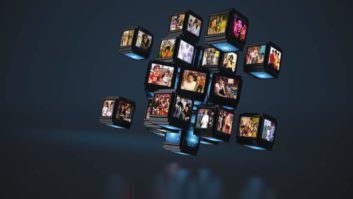September 11th, 2001. A day when viewers around the world were glued to their TVs watching the unfolding horror in New York, Washington DC and Pennsylvania. It started as a day like any other, but ended with a world changed.
TVBEurope spoke to three members of the TV industry who were working that day to hear their stories.
Craig Wilson, Avid Technology’s product evangelist, broadcast and media enterprise market solutions
At that time I worked as senior producer in the news and current affairs department of STV, based in Aberdeen, Scotland. I was producing a factual entertainment series at the time, and I was working with the research team to set up people to interview, the logistics of the shoots we would be doing, co-ordinating crewing, working on the budgets etc. One of the stories we had planned was to film in Boston with a Scottish sports commentator who was working with the New England Revolution football club at the time, but this was just one of a few dozen that we were in the process of lining up.
We were working in quite a large office space and there were only a few of us in, so things were pretty quiet, but we were busy getting on with the usual production tasks. It was around lunchtime when someone mentioned that we should put on Sky News as there had been some kind of plane accident in New York. Like many people at that time, it was hard to work out what had happened and whether this had been some kind of terrible accident, but as we were watching, the second plane hit the tower and it became clear that this was something truly awful.
STV is part of the ITV network in the UK, so the network news went open ended and that meant the local news shows were cancelled. There was little I could do at that stage as I was working on this other project. We had to continue with our planning, but we quickly began to realise that the trip to Boston which we had been working on for weeks was unlikely to happen. It was very difficult to get on with any work that day. The staggering nature of what was happening and the uncertainty about what this would mean for all of us was hard to comprehend. So while I and the rest of the production team tried to carry on with what we had to do, it was very difficult to focus. It made the programme we were working on seem pretty insignificant to be honest.
I was checking with our colleagues in the newsroom if there was anything I could help them with, but they were already busy working on finding local angles to the story with a view to these being covered in the coming days. We realised as the afternoon unfolded that this was going to dominate the news for a long time ahead.
The second plane hitting the tower was just so shocking, truly unbelievable, and I think that really brought home that this was a planned attack and that nothing was ever going to be the same again.
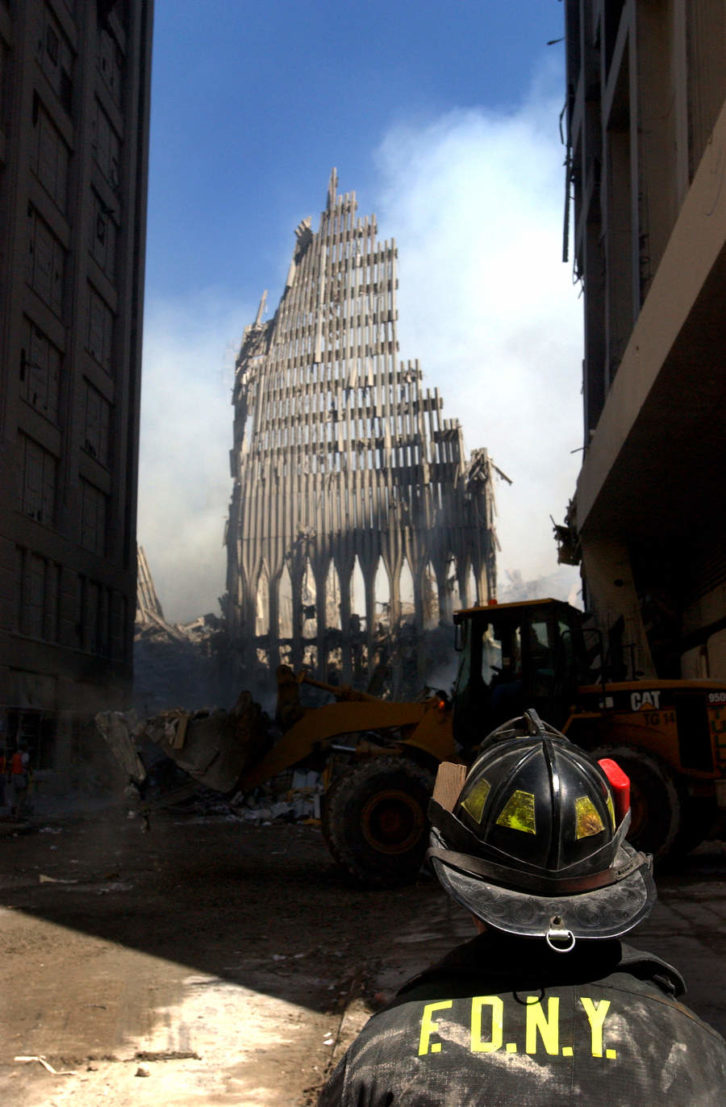
When a major event happens, the initial hours of covering a story are inevitably chaotic. Trying to piece together a story when so much is unclear, and you need to stay on air all the time, really draws out the true professionalism of the news media. Nothing is perfect in that kind of scenario but from what I saw, the teams did an incredible job in the most trying of circumstances. Not just on the day, but in the subsequent days. Did they get everything right? No they did not. There were mistakes made, but you also have to recognise that communication 20 years ago was not as easy as it is today. There was no Whatsapp, there was no Twitter, even news websites were still relatively new (and after the dotcom bubble only really the BBC had a major news website in the UK at that time), so things were very different. It was down to the broadcasters to provide that instant coverage, while trying to provide cogent analysis of what all of this meant for us. The tragedy was only just beginning to unfold. Twenty years later, I still really cannot quite believe it happened.
George Lopez, SVP operations, The Switch
I had been in our Los Angeles Master Control Room (MCR) for about 30 minutes when the first plane crashed into the North Tower. Shortly after it was all over the news.
After news outlets began showing footage of the first plane it struck me as odd that it had hit dead centre of the building with no signs of evasive manoeuvres. When the second plane hit the South Tower about 15 minutes later the phones in our MCR began to ring off the hook with studio live shot requests.
My day lasted approximately 29 hours as we were overwhelmed with studio live shots, which totalled approximately 70 in a 24 hour period across our three studios in Los Angeles.
Two things have stayed with me since that day: The feeling that came over me watching the second plane crashing into the South Tower and realising this was not an accident, but a terrorist attack, and how vulnerable we were as a nation against these types of attacks. And, how eerily quiet it got in our usually very loud and busy MCR when that second plane hit.
We experienced coverage of something never seen before, and I think many news outlets were unsure of what to say or how to say it. Watching news anchors display raw emotions was something I’ll never forget. I had only seen footage of it when JFK died, but watching them emotionally breakdown on live TV was compelling. I also think 9/11 changed how we cover global conflict. It’s now critically important for Americans to know what’s happening in other countries and how it could potentially affect us. I believe that is a direct result of 9/11.
Ian McSpadden, chief technology officer, Arizona Public Media
I had recently left ABC News DC to work for a startup streaming media company (Streampipe.com), I was in DC that morning for a shoot next to the State Department.
I drove in along the GW Parkway from Alexandria, VA passing the Pentagon on my left about 8:30am, my usual commute. I was at the shoot shortly before 9am. We had setup for a morning event, I believe 10am. We were ushered out of the building shortly after the plane hit the Pentagon. We saw the State Dept Police pouring out and surrounding the building, rumours were flying that planes were hitting NYC and DC and one was headed for the State Dept.
We went to our car parked in front of the State Dept, then noticed that the streets were all filled and no cars were moving, everyone was just looking up at the sky… We decided to walk out of DC if the sky was indeed falling (we all had families in VA). Walking the National Mall was eerie as thousands with briefcases in hand were walking silently west out of the city, no panic, but wide eyes looking up and back towards the Capitol Building and White House.
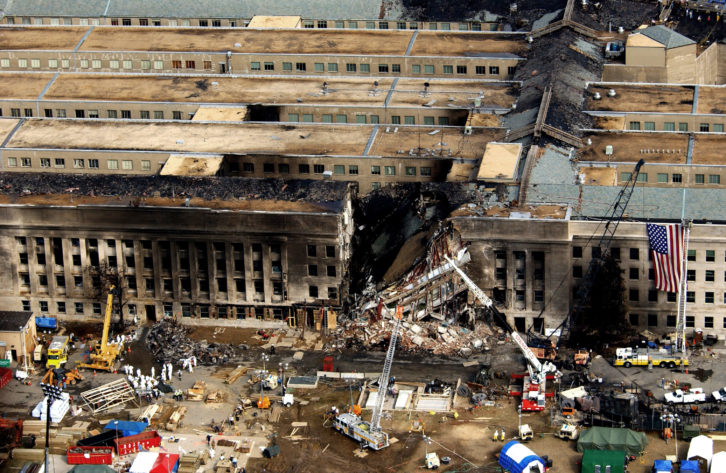
We saw the smoke billowing from the Pentagon, so having spent the previous ten years in TV news I walked towards the smoke… It was such a surreal sight, huge black smoke billowing from the building. I had a cell phone and called my old newsdesk. They filled me in on what had happened in NYC and asked if I would go live from DC, which I did, talking to the anchors about what I had seen and was watching unfold.
After reporting on the Pentagon via phone we walked up to Rosslyn, which is the first city in VA across from DC and went into a bar. There we watched the reporting on CNN of all three sites, and had a drink. We called our office in Springfield VA, and they sent a vehicle to pick us up around noon. Back at the office I looked out from the top floor of the high-rise back towards DC. I remember hearing a fighter jet scream by overhead. It gave me goosebumps.
I remember the quiet, from the exodus of DC to people at the bar and office, deafening silence. All the cars we passed as we walked out of DC were stopped dead in traffic, but no one was honking…
I left Streampipe about two months later and went back to work in news, working for Reuters Television which could cover the wars in Afghanistan and later Iraq for years to come.
Like when I saw the Space Shuttle explode in the ‘80s, TV coverage provides the nation an immediate and unique window on a national tragedy. Events like this bring the nation together, it is sad that is what it takes, but those two moments from my life are when I felt most that all Americans were united as one, from sympathy to anger. It was a unifying national experience.
